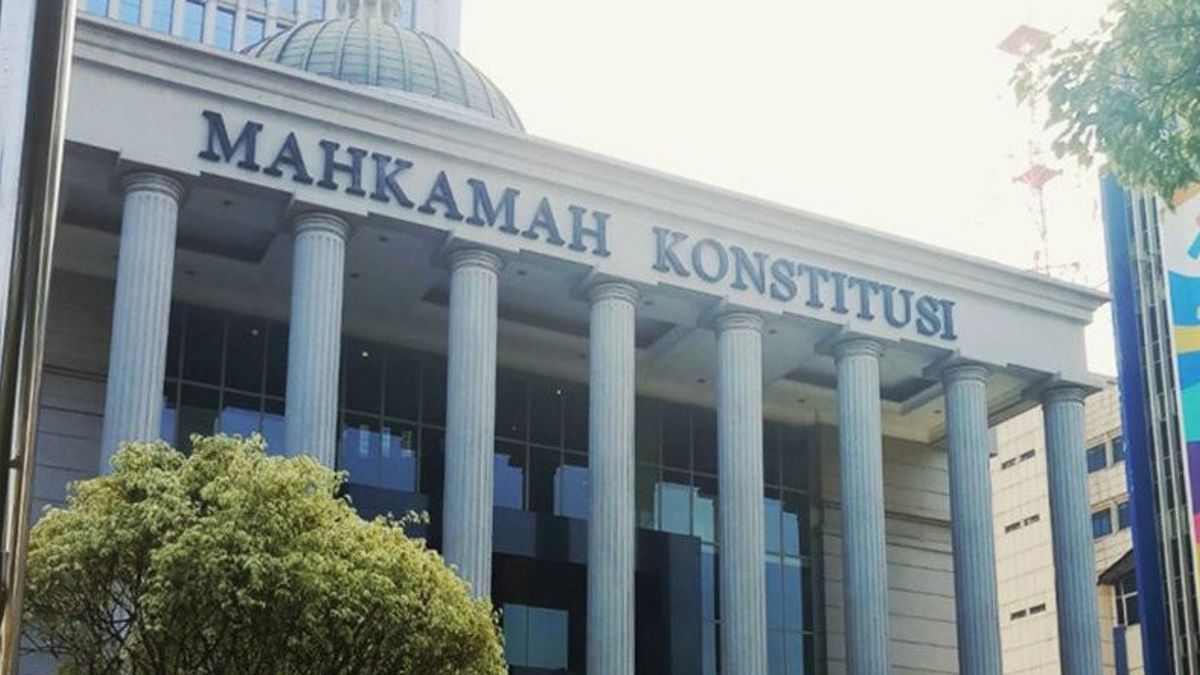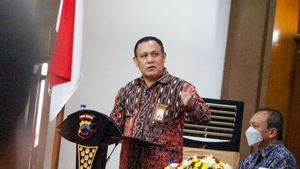JAKARTA - The Constitutional Court (MK) has completed a trial for Article 169 letter q of the Election Law regarding the minimum age limit for presidential candidates (candidates) and presidential candidates (cawapres) 40 years, on Monday, early last week.
Member of the Board of Trustees of the Association for Elections and Democracy (Perludem), Titi Anggraini said, the Constitutional Court was controversial and caused a lot of speculation. The controversy was not only triggered by the results of the verdict, but also the internal dynamics among judges.
"So it was the judges who made this decision controversial and created speculation," Titi said in her statement, Thursday, October 20.
In its ruling, the Court considered that experienced state officials as members of the DPD DPR, members of the DPRD, governors, regents and mayors deserve to participate in the contestation of presidential and vice presidential candidates in elections even though they are under 40 years old.
Substantially, said Titi, the Constitutional Court's decision was actually a good breakthrough for the practice of elections and Indonesian democracy. Because, the decision opens up wider involvement of young people.
"But the problem is that the decision was decided recklessly and was very open to showing the judge's inconsistency," said Titi.
Surprisingly, he said, the opinion of the 1 judge in a matter of days was adopted by the majority of other judges.
"In this case, it has increased to 3 judges, with the addition of 2 other judges except for those who were once regional heads," said Titi.
Titi saw that the judge's decision was full of political content. This is because there has been a shift in legal considerations due to the aspect of judicial politicization or politicization of the decision of the Constitutional Court which is recognized by the judge himself. Furthermore, Titi encouraged serious ethical examinations by the judges of the Court to restore the credibility of the Constitutional Court.
On the other hand, Titi supports the leadership of young people. However, not in a reckless way and breaking the ethics of the state.
On the same occasion, Chairman of the National Governing Body of the Indonesian Legal Aid Association (BPN PBHI) Julius Hebrew also opened his voice regarding the Constitutional Court's decision where the brutality of an oligarchy can be seen. According to him, the oligarchy regime legitimizes its brutality through the Constitutional Court.
"That's a pharmacy name, and it's only by one political power called the executive," he concluded.
The conclusion formulated at the end of the event was, even though the Constitutional Court's decision was final, there were actually goalkeepers, namely political parties (political parties). Political parties may consider the Constitutional Court's decision problematic. Regardless, the Constitutional Court's decision is legally valid and must be respected.
VOIR éGALEMENT:
Experts see that there is a risk for political parties as one of the GTeepers to rely on the Constitutional Court's decision as the basis for advancing Gibran Rakabuming to the presidential election market, because from the process the decision was not acclamation, ambiguous, there was no legal standing, and contained an acute conflict of interest.
Legal experts are also similar in assessing that this decision can undermine the value of democracy through the authoritarianism of the Constitutional Court which should protect the constitution in order to uphold legal constitutional principles.
The English, Chinese, Japanese, Arabic, and French versions are automatically generated by the AI. So there may still be inaccuracies in translating, please always see Indonesian as our main language. (system supported by DigitalSiber.id)













